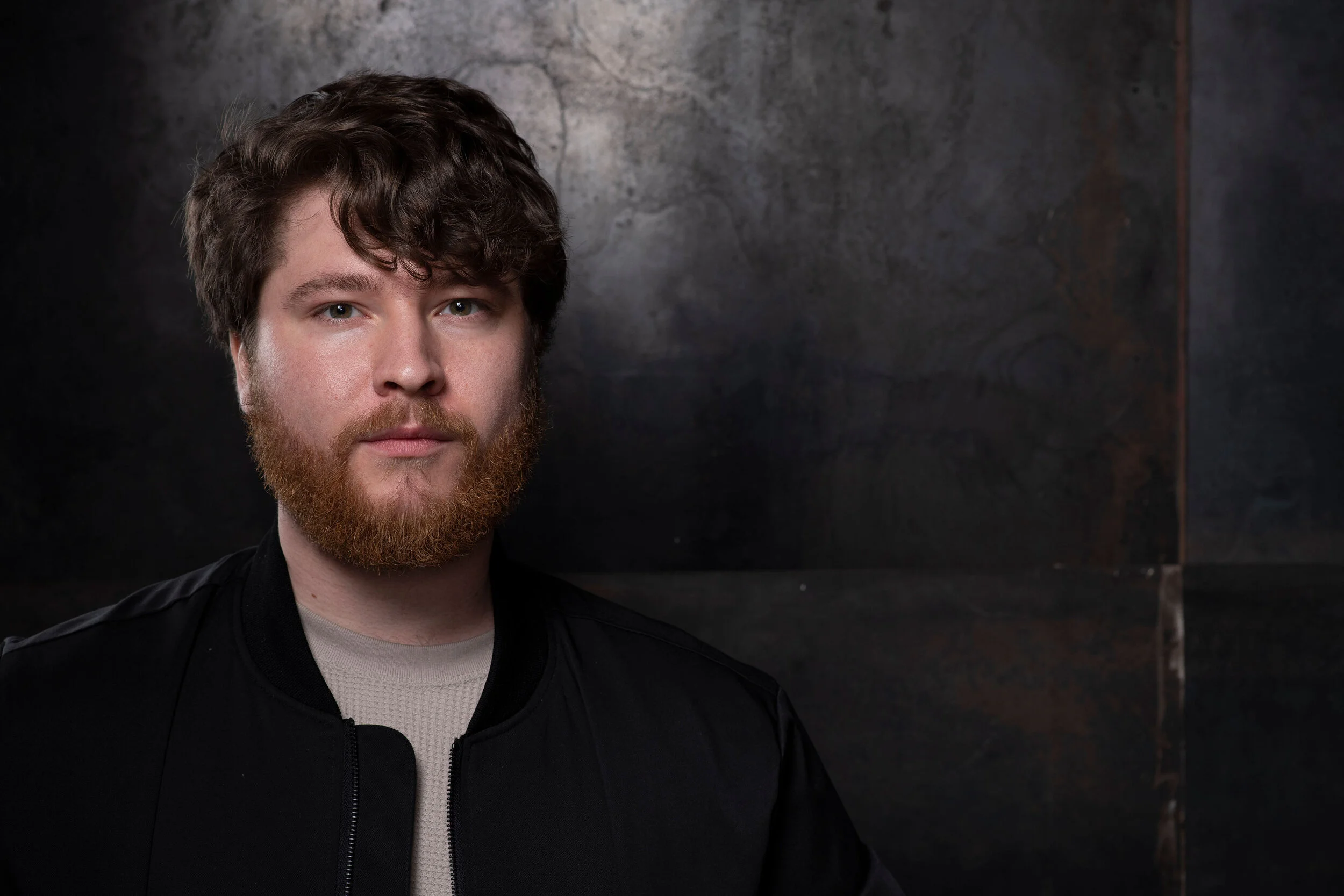Written by Stuart Singleton - Edited by Brendan Hayes - Introduction by Jonas Baker
The multifaceted manager and co-founder of Cake Records, Stuart Singleton has immersed himself in the music realm since his early teenage years. From organizing shows and managing bands, Singleton has worn all hats and diversified his craft. Whether it's social media promotion, artist development, publicity work, or crafting his beats, Singleton is comfortable as a renaissance man. Alongside the plethora of musical endeavors, there's innate creativity that runs in his blood. With only 4 years of photography experience, he's curated photoshoots, directed music videos ("Who Are You") and designed thousands of concert posters. Today, we give you his expert insight on claiming what's owed to you for making all of your amazing sounds
How soon should bands consider copywriting their original work?
The protection of your copyright begins the moment the work is fixed in a tangible form, which can mean something is written down or stored in a computer. Having a date associated with your copyright is extremely important, and why the rumor of mailing a copy of your work to yourself protects you. This type of protection is different from registering your work with the Library of Congress. A copyright infringement lawsuit is when having your work registered with the Library of Congress is the most important. If you plan to sue someone over copyright infringement the only way that you can get the infringing party to pay your legal fees is if the work has been registered with the Library of Congress. Even if your work is not registered you can still sue, but likely the case will not be brought to court unless your work has been registered. Since copyright infringement is a federal offense, it has to go to federal court, which is rarer than one might think.
What is the 21st-century function of Record Labels, Managers, Publicists, Licensing Companies?
Record Labels in the 21st century function more like investors. I go into more detail about this in one of the next sections.
Managers are essential to putting all the pieces together for any successful artist. Working directly with publicists, marketing companies, SYNC agents, booking agents, and royalty admins is a huge part of a manager's job. Making sure all these people are on the same page for a release is of the utmost importance. A lot of people think that a manager should do all these things themselves. After trying it myself, I quickly realized to be a successful manager you have to learn how to delegate work. Delegation is the key to success for almost any business. Richard Branson doesn't run all the companies he has, but instead, he finds the right person to run those companies for him. You only have so much time in the day so use it wisely.
Publicists are still important but not as influential as they used to be. Nowadays blogs and magazines are not breaking artists like they used to. A group of tastemakers used to be able to decide which artists to support and they would be on the forefront of all media. Having good press is still important when building your brand as an artist. Being able to include press quotes from various outlets makes you look one hundred times more professional than bands who have no press. If you have a ton of press, but no streams then you aren't making money. Having a publicist as your business grows is more important than when you first started. Spending time on publicity takes away from time that you can be spending elsewhere. Once doing publicity yourself takes more time than it is worth it is extremely beneficial to hire a publicist.
Who should bands be licensing their music through?
Bands and artists should be actively looking for SYNC agents to help get their music into TV shows, Movies, Video Games, and Commercials. You want to look for a deal that is exclusive for around a year and do not want to give away masters or publishing just for a sync opportunity. Nonexclusive deals for SYNC can sometimes cause two different people to be pitching the same song for different prices to one music supervisor, which can come across as unprofessional and cause the music supervisor to not choose your song. If the SYNC agency hasn't brought you any opportunities after your contract is up, find someone else.
What are platforms bands should be utilizing for monetization and do they need record labels to help to do it?
People who create music do not need a record label to monetize their music. The places right now to collect money for people who create music are the PROs (BMI, ASCAP, SESAC), HFA, MRI, CMRRA, SoundExchange, YouTube, and digital distribution. There are two main pieces of intellectual property that artists and songwriters can make money from, masters and publishing. Masters are also referred to as Sound Recordings and publishing is often referred to as the composition. Owning a composition or publishing means you should be receiving performance and mechanical royalties.
In the United States, any business using music has to obtain a blanket license from BMI, ASCAP, and SESAC that license is then used to generate revenue for songwriters and publishers. The PROs have reciprocal agreements worldwide so that you do not have to register with every single country's PRO.
However, with mechanical licenses it is a little different. HFA (Harry Fox Agency) and MRI (Music Reports Inc.) both collect mechanical royalties for the United States, but both have exclusive deals with different companies. MRI has dealt with Amazon, Deezer, iHeartRadio, SoundCloud, TikTok, Twitch Sings, and many more. HFA has dealt with Apple Music, Spotify, Facebook, and a few more. If you are not signed up with both in the United States then you are missing out on mechanical royalties. Mechanical royalties worldwide are a little different than performance royalties. The PRO's have reciprocal agreements so you do not have to register with all of the PROs around the world. However, with mechanical royalties you have to be registered with each country's mechanical rights organization. Some countries group their mechanical rights organizations with their performance rights organizations, but for the countries that do not, I highly recommend affiliating with a foreign sub-publisher.
Foreign sub-publishers already have relationships and accounts with all these mechanical rights organizations all over the world, so working with them to find your mechanical royalties makes things way easier. For performance royalties in the United States, we have a distinction between interactive and non-interactive streaming, while in Canada you get paid the same on both interactive and non-interactive. SoundExchange collects royalties for sound recordings played on non-interactive digital radio, which is also called master performance royalties.
YouTube is in its own world when it comes to royalties. You get paid from both the sound recording and composition from YouTube, but how much you get paid per view is a little different. If a video is not set to monetization on YouTube then you cannot make any money from it, because all YouTube royalties are ad-based revenue. Without an ad being played then there is no revenue to be generated. How much you get paid from a view once monetization is in place is affected by the time of viewing, the location of the viewing, if it was on a phone or a computer, and the current ad rate for all of those factors. If there is a conflict on YouTube, meaning two parties are claiming over 100% of a composition or sound recording, then YouTube just holds the money until the conflict is resolved. This means there are huge songs out there right now that no one is getting paid on just because of conflict. The other fascinating part about YouTube royalties is that if you do not claim your copyrights within a certain amount of time then your money goes to someone else. YouTube announces the money they will be paying out each year and if you do not claim your percentage of the market share then that money goes to someone who did. This creates a giant income inequality between bigger artists who have organized YouTube metadata and smaller ones who do not. I am sure most of you are overwhelmed by reading all the different ways you can make money and not sure what the next step is. Music administration companies are here for this exact problem.
The company I work at, Exploration, specializes in making sure artists, songwriters, publishers, and labels are getting the money they deserve from all the platforms out there. If you are reading this and wondering if you are covered or need help feel free to send me an email and I will do a free test audit of six songs to see what you might be missing out on.
CONTACT: Stuart.Singleton@exploration.io
When and why should an artist approach a record label?
I think if an artist has to approach a label then they might not be ready for a label. Labels are hyper-aware of who is doing well and who is not because of the amount of data now available in the modern age. If you are approaching a label rather than them approaching you, most likely you will not have the upper hand in negotiating. Labels want artists and brands that are already generating revenue, so if you are already generating revenue then what can a label do to benefit you? I look at artists and bands like a business and labels as investors. No investor is going to spend money on something if they do not think they will make it back. What is my cost versus potential revenue? With an artist that is already making money, the risk is much smaller when compared to spending money to 'break' an extremely talented artist. The goal of all artists and bands right now should be to start looking at yourself as a business. Hack into all of the revenue streams that are out there and invest in yourself! I see so many artists just put out music and wait for something to happen. If you are not actively working to promote your brand with MONEY and build your revenue stream, then nothing is going to happen for you. No one else is going to promote your music if you aren't and 90% of the time when you meet with labels they are going to ask you about your stats before they listen to your music. As ridiculous as it sounds labels care how many followers you have and what your engagement is like on social media.

